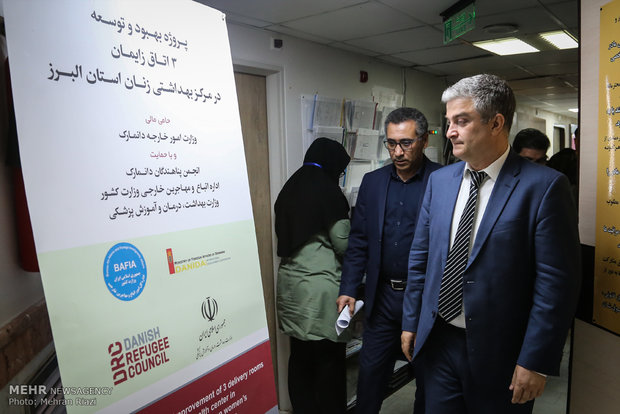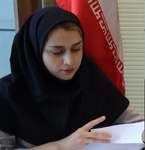The first wave of Afghan refugees arrived in Iran following the 1979 Soviet invasion of Afghanistan and subsequent civil war. They had access to public education and opportunities to work. Some 97% of Afghans lived outside refugee camps, and were integrated into urban communities. During this period, immigrants settled in different cities in Iran and lived alongside other people and enjoyed many rights and benefits.
At the time, Leader of Islamic Revolution Ayatollah Khomeini welcomed them with open arms, and Iran’s Revolutionary Guard and Basij Militia were assigned to cooperate with the Afghan’s immigrants.
Afghans have lived in Iran for 30 years. A lot of their children have been born in Iran and have not seen Afghanistan, and they seek their future in Iran.
Along with the above mentioned issues, what is most problematic, was illegal arrival and presence of a large group of Afghans in Iran.
Forging identities in order to obtain citizenship rights instead of attempts to spend legal ways, employment issues, citizenship of children (from interracial marriage of Iranian women and Afghan men, or vice versa), security issues in border areas, extension of marginalization in different cities, change in structure and population composition, and low literacy, education and awareness level among Afghan immigrants are among the issues that threatened the country in many economic, cultural, political and security fields and in the first place, it means breaking the rules of Iran.
In addition to the problems facing refugees in any country, including in Iran, they found most of Iranian nation hospitable and kind.
The Iranian government took formal responsibility for the refugee population and allowed foreign NGOs, international organizations and UNHCR only a marginal role. Although it received a large number of refugees, Iran was generally considered a supportive host country. Refugees were not required to settle in camps, but could live where they found work. They also had access to healthcare, basic education and subsidized food on the same terms as Iranian citizens.

Two years ago, the Islamic Republic of Iran has set an example, globally, by including all refugees into its Salamat Insurance Scheme that provides all registered Afghan and Iraqi refugees with health insurance services similar to that of its own nationals. All registered refugees residing in Iran now have access to the Salamat Insurance Scheme and benefit from a health insurance package for hospitalization and temporary hospitalization same as the scheme available to Iranian nationals. The scheme became available upon an agreement between UNHCR, the Bureau for Aliens and Foreign Immigrants Affairs (BAFIA) of the Ministry of Interior, and the Iran Health Insurance Organisation (Salamat).
Sivanka Dhanapala, UNHCR’s Representative in Iran acknowledged the Iranian Government’s contribution, expressed UNHCR’s gratitude towards Government of the Islamic Republic of Iran for all the services it has rendered to the largest protracted urban refugee population in the world for over three decades, and inclusion of the refugees in this Universal Insurance Scheme which is exemplary not only regionally but also globally. He also said such a services haven’t been provided before and “I sincerely hope other countries will follow this example.”
There are approximately one million registered refugees living in Iran. Under the Salamat health insurance, 300.000 identified vulnerable refugees will be covered for six months by paying 9.12 USD per person and the scheme fully pays for the premium fees of refugees with special disease.
In addition to Iranian government’s help to the immigrants, there are some domestic and foreign NGOs defined as humanitarian, non-governmental and non-profit which provide assistance to improve the situation of refugees, enabling them to live normal lives across the world.

The Danish Refugee Council (DRC) is one of those organizations working in more than 30 countries throughout the world, including in Iran.
In an attempt to provide direct assistance to conflict-affected populations, i.e. Afghan refugees in the Islamic Republic of Iran and as an integral part of the strategic regional response to Afghan displacement, DRC has carried out projects and initiated operations in Iran to resolve the situation of refugees and enabling them to live normal lives across the world. The overall objective of the programme is to improve livelihood opportunities and promote protection and durable solutions for Afghan refugees, whether they stay in Iran or return to Afghanistan.
Danish Refugee Council is one of the few international organizations in Iran that focuses specifically on Afghan refugees.
DRC has become a key partner of the United Nations High Commissioner for Refugees (UNHCR) and the Iranian Ministry of the Interior in order to provide support for Afghan refugees and to work towards the objectives that have been enunciated in the Solutions Strategy for Afghan Refugees (SSAR).
The main office of DRC Iran is located in Tehran; field implementation is carried out through national partners in Tehran, Markazi, Alborz, Fars, Yazd, and Khorasan Razavi provinces.
In Iran, Danish Refugee Council has been implementing projects since mid-2012 in the following thematic fields:
- Shelter and the rehabilitation of community-based infrastructure;
- Technical- and vocational-skills training courses for men and women;
- Business-training courses and the distribution of business start-up grants to vulnerable Afghan refugees;
- Provision of access to basic education and healthcare for Afghan refugees;
- Provision of service-delivery and referral networks to extremely vulnerable individuals (EVIs), combined with the capacity building of Afghan refugee volunteers in needs assessments and enhanced service provision for members of the Afghan refugee community in Iran;
- Socioeconomic research on refugee needs and local and regional linkages for Afghan refugee communities;
- Capacity building of local authorities and community-based civil-society organizations; and
- Coordination with key stakeholders for the development of sustainable strategies for the job placement and/or voluntary repatriation of refugees from Iran.
Visiting Danish Refugee Council’s projects in Iranian city of Karaj, Alborz province on June 12, Denmark’s Ambassador to Iran Danny Annan was accompanied with DRC Country Director Ruta Nimkar, Danish Deputy Head of Mission Malte Möller-Christensen, DRC Program Quality and M7E Coordinator Maryam Bidmeshgipour and Mehr News correspondent.

The organization is active in Iran since 2012, and is currently implementing a broad range of activities relevant to the Afghan refugees, including establishment of a Birth Center in Sarallah Hospital, a tailoring workshop and an educational institute in Karaj.
The hospital, located in Mehrshahr of Karaj, offers birth and delivery services without receiving any fees from refugees. The architectural design of LDR rooms are in such a way to enable effective pain relief through two primary mechanisms: relaxation through a calm, supportive physical environment, and labor in water. The place also offers services to Iranian women, too.

The institute offers different courses, including vocational skills training courses like tailoring workshop and improved access to basic education and healthcare, like pharmacy classes, English courses and extracurricular classes for mathematics, science and physics.

There was also a tailoring workshop where almost 16 women and girls were working to make a living. When asking about their dreams of future, the students expressed content towards their life in Iran and said they want to make use of their learnings and skills in Afghanistan.


























Your Comment